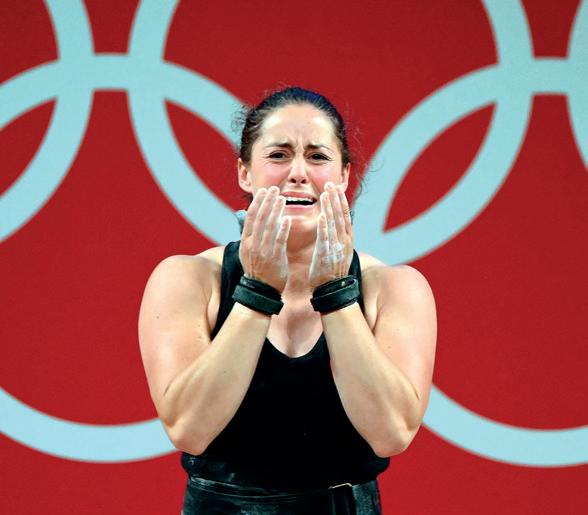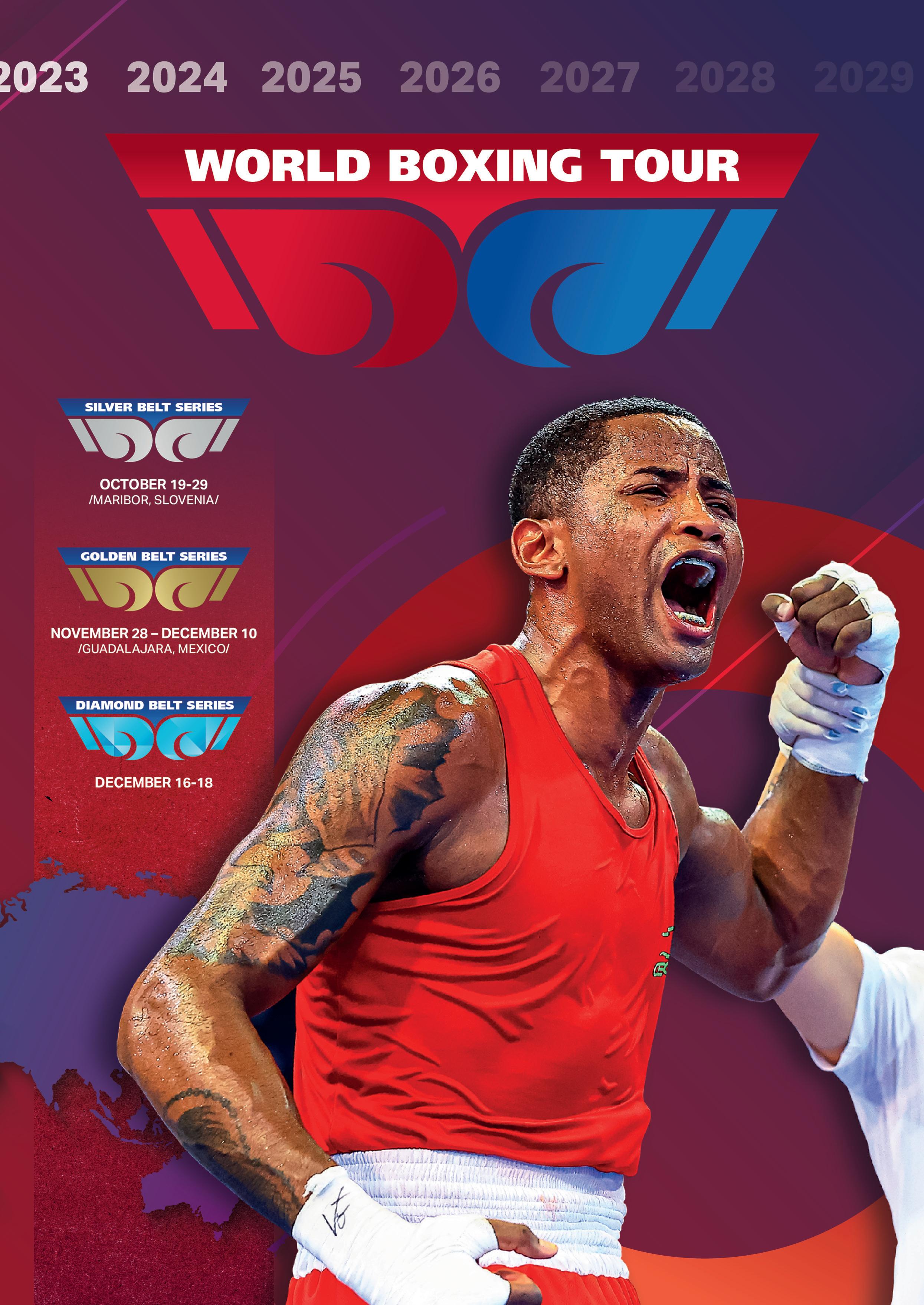
9 minute read
Sport Ignites Again
Sport ignites again Sport ignites again
The long battle with COVID-19 may never truly go away but the experience has provided some positives for NOCs as normality threatens to return. Patrick Burke speaks to officials on three continents to find out more.
Advertisement
The Association of National Olympic Committees’ plans to stage its General Assembly in Seoul in many ways embodies the disruption, frustration and uncertainty borne by its members in the last two-and-a-half years.
South Korea’s capital is finally due to bring the 206 National Olympic Committees together at their annual gathering under ANOC’s umbrella, after the COVID-19 pandemic put paid to those hopes in 2020 and led to a move to Crete last year.
The unprecedented challenge posed by COVID-19 is one shared by numerous NOCs, but they found a plethora of ways to ensure the show went on from a sporting perspective.
“Extraordinary” was how New Zealand Olympic Committee President Mike Stanley described managing the NOC’s activities during the COVID-19 era. Bringing “havoc to local sport” was Maltese Olympic Committee secretary general Kevin Azzopardi’s reflection on the pandemic’s impact, while Canadian Olympic Committee chief executive and secretary general David Shoemaker referred to it as “a challenge for everyone”.
New Zealand’s approach to the pandemic under Prime Minister Jacinda Ardern featured strict border controls and periods of tough lockdowns, with the aim of keeping infection rates at a minimum before the measures were relaxed this year.
Despite the scale of the challenge, the country’s athletes amassed a record 20 medals at last year’s delayed Tokyo 2020 Olympics, and Stanley detailed how safety became a top priority.
“They were extraordinary challenging times, and when we started along the process we probably didn’t appreciate just how challenging they were going to be because they took quite a few twists and turns,” he said.
“Our focus was to make sure that we did everything to get our athletes to the Games with the very best preparation that circumstances would allow, and that framed our thinking.
“Obviously their wellbeing was top of the mind, as well as how we would take the circumstances into account and plan the various scenarios and risk assessments so we
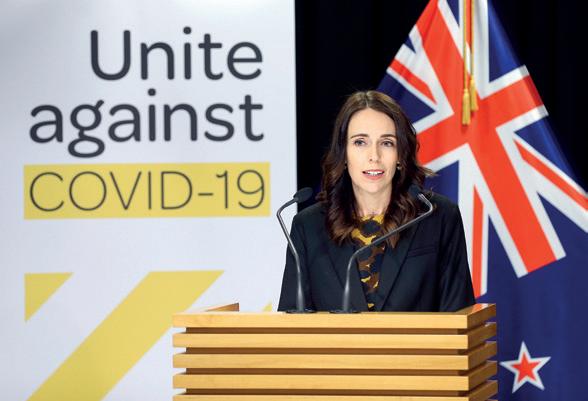
New Zealand had some of the strictest COVID-19 rules in the
world. Photo: Getty Images
PATRICK BURKE JUNIOR REPORTER, INSIDETHEGAMES
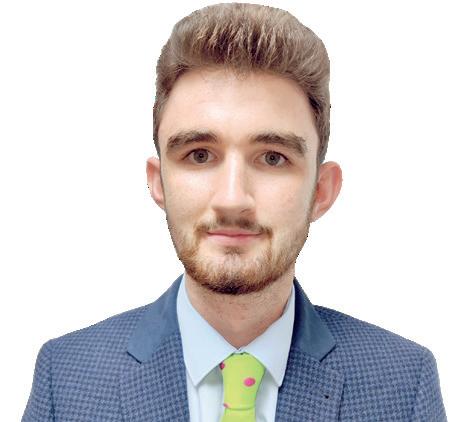
could safely support our athletes to get to the Games.
“The impact was obviously significant on all of our activities, because in New Zealand our quarantine measures and those sorts of things were strict and long-lasting, so once New Zealand closed its borders, we effectively became an island of our own, and we had to really innovate to ensure that within that island, our athletes could continue to feel good about what they were doing and optimistic about the future.”
For Malta, sport was brought to a halt in March 2020 as with most of Europe.
An easing of restrictions during the summer months enabled sport to resume behind closed doors, before the beginning of a vaccination programme marked “a positive step forward”.
After fans returned last year, Azzopardi said that the situation in the country has developed to bring it to the “closest we ever were to normality”.
“Here in Malta, bar two or three National Federations, the rest are completely run on a voluntary basis,” he said.
“So you can imagine a person caught up at home, not going to his or her full-time job, and having to take care of family from home, how that complicated matters.
“At the beginning, until people started to come to terms with what was going on, it brought about some havoc I must admit.
“But gradually we had to adapt and I think that was key, and things started to settle down and people had to realise that this is a new norm that we were living.
“I must say as well that guidance from our national sports authority, SportMalta, and Government was always forthcoming, so it was never a case of being left in the dark.”
Shoemaker outlined how the pandemic forced the COC to take stock of its approach, and detailed the lengths athletes went to as they prepared for both Tokyo 2020 and the Beijing 2022 Winter Olympics.
“The pandemic has been a challenge for everyone,” he said.
“The uncertainty and fundamental changes to how we work, live and play, have forced many organisations, including the Canadian Olympic Committee, to look at how they function and what they’re working for.
“At the outset of the pandemic, health and safety came first, and training for the Olympics in Canada largely stopped.
“The challenges faced by Canadian athletes were among the toughest globally.
“Some Canadian swimmers trained in backyard pools with tethers attached to their ankles.
“Olympic champion Damian Warner fashioned a decathlon training centre on the floor of his local hockey arena.
“Maude Charron, who went on to win gold in Tokyo, built a weightlifting gym in her father’s garage, and speed skaters took to frozen lakes.”
NOCs became reliant on video conference platforms to continue their operations.
Virtual and hybrid formats for key meetings are something the Olympic Movement has become accustomed to, and, in the face of adversity, many NOCs have found solace in the lessons drawn from the pandemic.
“One of the key highlights, if we can call it so, of the pandemic is that it has made us realise we have a lot of technology tools around us, at least here in Malta, which we were not making use of,” Azzopardi said.
“Here in Malta, we were always used to traditional face-to-face meetings because the proximity for us is very close, so going from the south to the north of the island will only take you 45 minutes.
“Although we were in particular used to Skype, it was used mainly when we had meetings with people abroad.
“We discovered tools which we are still using today.
“I prefer a face-to-face meeting because it is different from an online meeting, but I think that we are gaining a lot of time as well when we are still organising online meetings.
“For example, we created a platform on Microsoft Teams together with all of our National Federations which was a matter of saving time for all of us, and we will carry on.”
The NZOC was required to work closely with athletes and other organisations including High Performance Sport New Zealand and the Government, and these strengthened ties was a positive of the pandemic for Stanley.
“I think in a strange way it’s been incredibly empowering because it demonstrated that we’ve got a wonderful group of people on our staff and a Board which was very supportive,” he said.
“That cross-sector collaboration we’ve always been pretty good at, but that went to another level, and I think that’s a permanent plus in the system now - the ability to really look at things differently and look at solutions.
“So becoming very solutions-focused rather than a rigid template of ‘this is how we do things all the time’.
“I think it’s led to some additional innovations and also to strengthening our commitment to [the team culture of] manaaki [respect], which has been very strong throughout and is very genuinely held throughout the team, and I’m sure is going to be a significant feature of future teams.”
The pandemic provided an added emphasis on sport as a force for good, and that proved the main takeaway for the COC to take into the years ahead.
“Beyond the Games, the pandemic shed some light on inequities across society, and it caused us to look at ways of addressing them within our sphere of influence,” Shoemaker said.
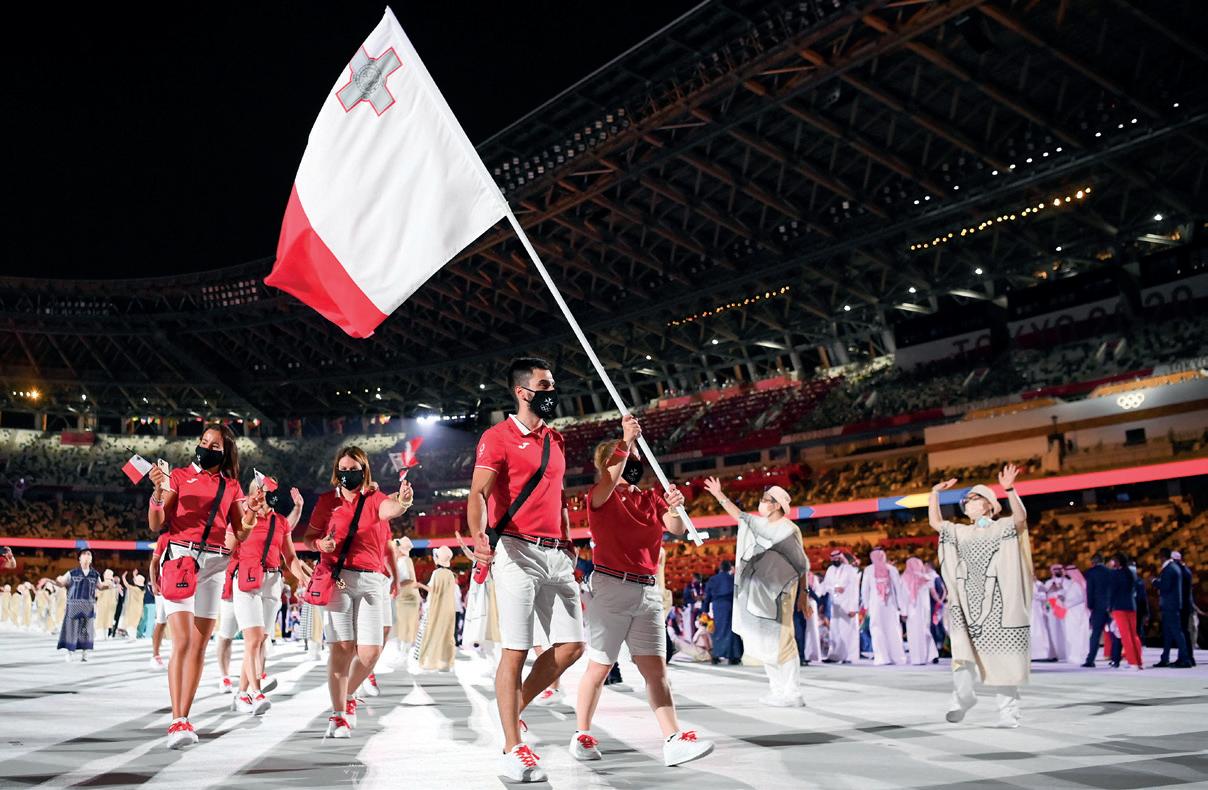
Malta faced problems as sport on the island is predominantly run on a voluntary basis. Photo: Getty Images
PATRICK BURKE JUNIOR REPORTER, INSIDETHEGAMES


Sport is starting to move on from the strict measures seen at events such as Beijing 2022. Photo: Getty Images
“For the COC, that means supporting a barrier-free sport system that is safe and inclusive, supporting and inspiring young Canadians to stay active and pursue their athletic dreams and investing in programmes that help support and develop athletes both on and off the field of play, such as Game Plan and the Athlete Excellence Fund.
“This was all critical in the earliest days of the pandemic, but we’ve taken these lessons to heart and they remain a priority for us as an organisation looking forward.”
COVID-19 remains a threat to international sport because of the financial impact, and events and athletes are not immune from further disruption. This is shown by the string of postponements and cancellations in China, most notably of the Hangzhou 2022 Asian Games until next year.
Several cyclists at the Vuelta a España in August and September also expressed frustration at measures they perceived were too strict after more than 20 riders were forced to pull out of the race for COVID-19-related reasons.
NOCs are handling their futures in different ways.
In Malta, Azzopardi said the country has taken the stance that “there is no turning back”, and the MOC is pressing ahead with preparations for hosting the 2023 Games of the Small States of Europe.
He acknowledged that COVID-19 “delayed certain preparations” and believes the cancellation of the 2021 edition in Andorra “added a bit of responsibility”. But he describes hosting the Games, which are for countries in Europe with fewer than one million people, as “an honour”.
“This is third time that Malta will be organising these Games following 1993 and 2003,” Azzopardi said. “We have all the necessary backing from Government, all the facilities are being brought up to scratch with all the requirements and the Maltese public are looking forward to these Games.
“We anticipate having venues that will be full to the brim with spectators in full support of local athletes, and, from a technical point of view, we are trying to give maximum opportunities to our athletes to be as best prepared as possible for the Games.
“COVID did have an impact because it delayed certain preparations both administratively and technically, but I think today we are back on track.”
Stanley admitted that the pandemic “has created a bit of a hole in some of our revenue streams”, and that the impact of competing in Tokyo, Beijing and at the Commonwealth Games in Birmingham in a short timeframe of little more than a year had been “wearing on staff”.
However, he said the NZOC is “very optimistic about the future of sport and excited by the upcoming Paris, LA, Brisbane pathway” with regards to the Summer Olympics.
New Zealand fully reopened its borders to international visitors in July and staged the New Zealand Winter Games in August and September, featuring athletes from more than 30 countries.
Stanley said that “there’s a young generation of athletes coming through now excited about their opportunities in winter sports”. He added that the Commonwealth Games, possibly because of the pandemic, had a bit of an “x-factor” as they took place in front of packed crowds.
COVID-19 has changed sport, and for many NOCs the experience has shaped them into the organisations they are today.
